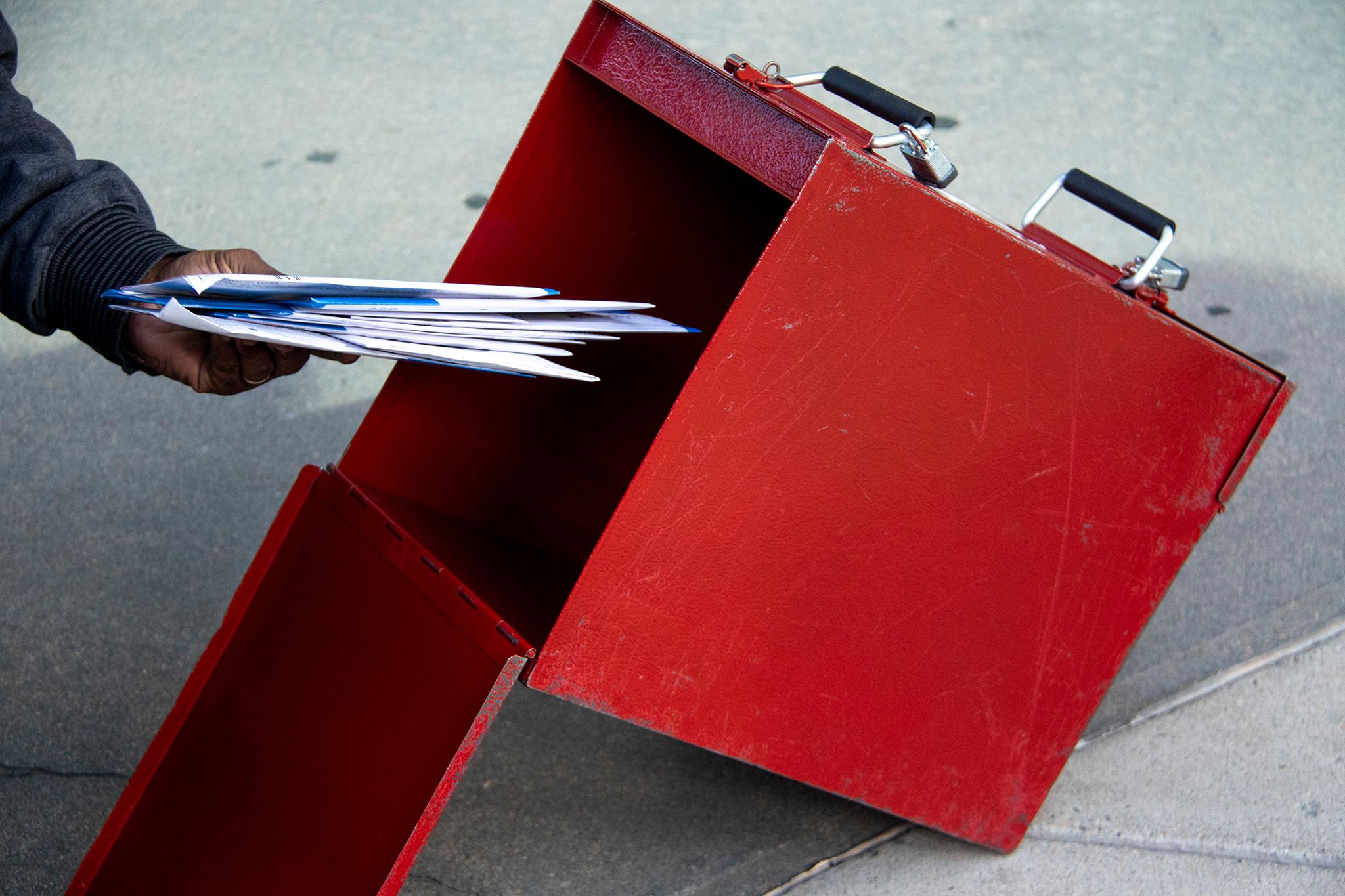It's a question you might be wondering while looking at your ballot full of so many mayoral candidates.
How could one out of 16 active candidates on the ballot get more than 50% of the vote?
The answer: it's not likely, especially with a February poll showing no candidate with even 8% support, 60% of voters undecided and a large margin of error.
If no candidate in the mayoral race and district council races gets more than 50% of the vote, the race will go to a run-off between the top two vote getters. That run-off will take place on June 6, so you should probably get ready to vote again.
It's happened before. In 2019, the mayoral race had six names on the ballot (fewer than half compared to this year!). Incumbent Mayor Michael Hancock made the runoff with around 39% of the vote, along with Jamie Giellis with around 25% of the vote. Hancock ultimately won reelection for his third and final term with about 56% of the vote.
There are a few races that will be or will most likely be determined when votes start being counted on April 4.
In the City Council at-large race, there's no run-off. The top two vote-getters win the seats. With nine candidates on the ballot, this means that the winners could win their seats with less than 50% of the vote. In 2019, at-large Councilmember (and now mayoral candidate) Debbie Ortega won with around 36% of the vote, and outgoing at-large Councilmember Robin Kneich won with around 27.5%.
Then there are the district races. Incumbent Councilmembers Jamie Torres (District 3), Paul Kashmann (District 6) and Stacie Gilmore (District 11) are running unopposed, so we know what to expect in those races next week.
Then there are three head-to-head races, which will also likely yield final results following April 4:
- Ava Truckey versus incumbent Amanda Sandoval in District 1;
- Tony Pigford versus Diana Romero Campbell in District 4;
- and incumbent Amanda Sawyer versus Michael Hughes in District 5.
The only exception would be if enough write-in candidates in those races take up a large enough portion of the vote that no one reaches above 50%-something that's technically possible but pretty unlikely.
That leaves District 2, District 7, District 8, District 9 and District 10 with the potential for run-offs, if no one earns more than 50% of the vote. In 2019, five of the six district races eligible for run-offs held them.
Paul D. López, the city's Clerk and Recorder, is also running unopposed.
The auditor's race, where Timothy O'Brien is seeking a final term against challenger Erik Clarke, will be decided next week as well.
We'll also know the outcome of the three referred questions voters will see on the ballot.
These are yes or no questions, so expect to know once votes are tallied. You'll see three on your ballot: one about how council runs zoning, one about who can protest Council zoning decisions, and one about the future of the hotly contested Park Hill Golf Course.
You can read more about all these races in our ballot guide here, and a full explainer on how the election works here.
And with fewer than 6% of ballots returned a week before election day, we'll take this opportunity to remind you: they're due April 4, so get them in!












